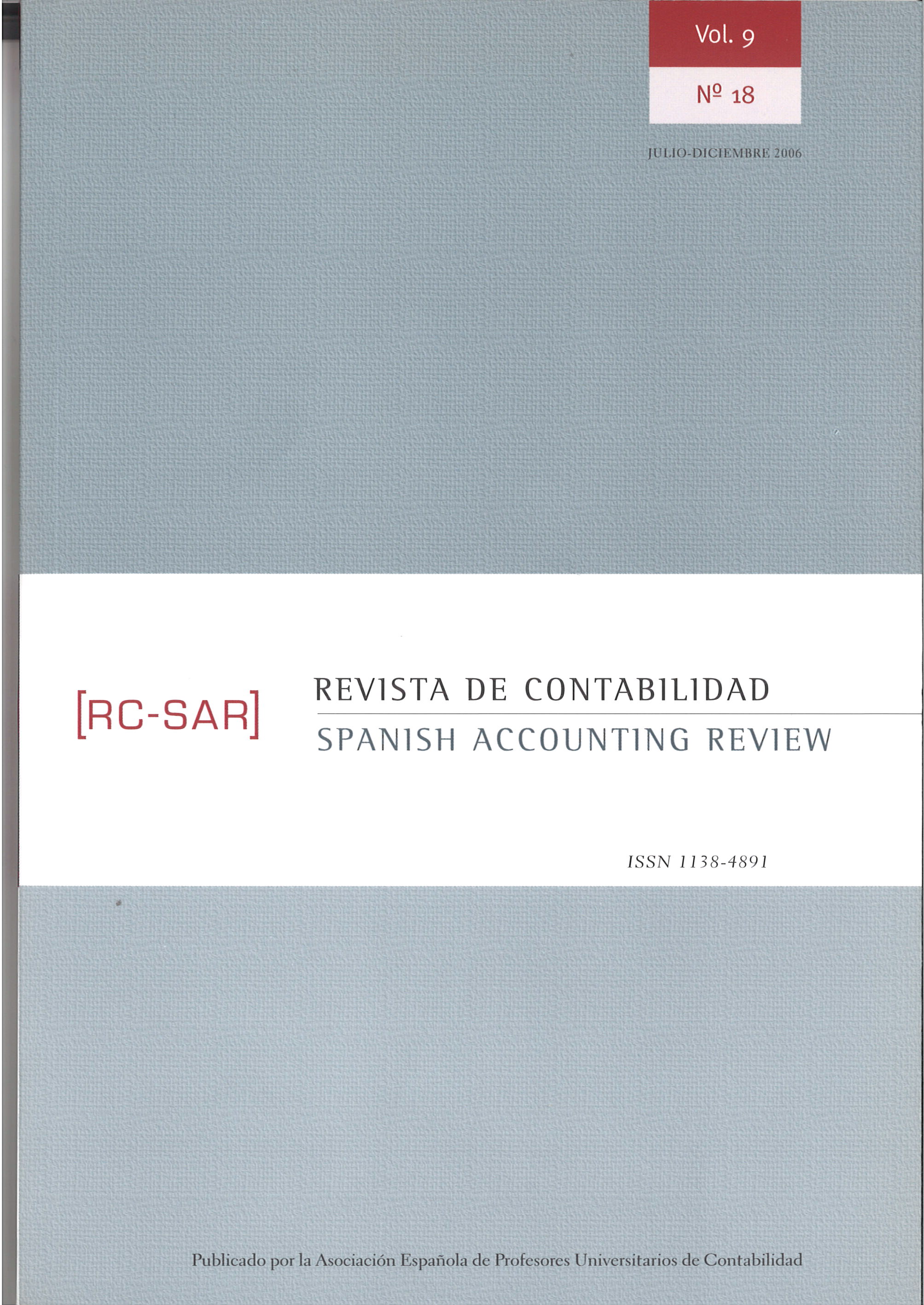Los Problemas de Control en los Canales de Distribución: Evidencia Empírica de la Contribución de los Sistemas de Control de Gestión.
Control Problems in Distribution Channels: Empirical Evidence of Management Control Systems Contributions
Resumen
Como parte de la cadena de suministros, las empresas productoras están poniendo mayor énfasis en la gestión de sus canales de distribución externalizados (DCs). Sin embargo, aún no existe una clara comprensión sobre el papel que los Sistemas de Control de Gestión inter-organizativos (MCS) pueden desarrollar en la gestión de los problemas de los DCs. A través de un estudio de caso, se muestra cómo los problemas de control intra-organizativos persisten en un contexto inter-organizativo, causados por las asimetrías informativas y el conflicto de intereses, y agravándose por las interdependencias. Asimismo, se expone cómo los MCS ayudan a la empresa productora a comunicar a sus distribuidores lo que la organización desea de ellos, motivándolos y capacitándolos. De esta forma, los MCS pueden ayudar a completar y redirigir acuerdos entre firmas y constituir una herramienta clave en la gestión flexible de los DCs.
Descargas
-
Resumen158
-
PDF 110
Citas
Anderson, E. and R. Oliver (1987), “Perspectives on behavior-based versus outcome-based salesforce control systems”, Journal of Marketing, 51 (4): 76-88.
Baiman, S. and M. Rajan (2002), “Incentive issues in inter-firm relationships”, Accounting, Organizations and Society, 27 (3): 213-238.
Bergen, M.; Dutta, S. and O. Walker (1992), “Agency relationships in marketing: a review of the implications and applications of agency and related theories”, Journal of Marketing, 56 (3): 1-24.
Celly, K. and G. Frazier (1996), “Outcome based and behavior based coordination efforts in channel relationships”, Journal of Marketing Research, 33 (2): 200-210.
Cepeda Pérez, J.M. (2003): El canal de distribución: Disección de las relaciones comerciales. Septem Ediciones, Oviedo, España.
Dekker, H. (2004), “Control of inter-organizational relationships: evidence on appropiation concerns and coordination requirements”, Accounting, Organizations and Society, 29 (1): 27-49.
Frazier, G. (1999), “Organizing and managing channels of distribution”, Journal of the Academy of Marketing Science, 27 (2): 226-240.
Frazier, G. and K. Antia (1995), “Exchange relationships and interfirm power in channels of distribution”, Journal of the Academy of Marketing Science, 23 (4): 321-326.
Gietzmann, M. (1995): Introduction to agency theory in management accounting. Issues in Management Accounting, (2 edition), Prentice Hall.
Kaplan, R. (1983), “Measuring manufacturing performance. A new challenge for management accounting research”, The Accounting Review, 58 (4): 686-705.
Klein, B. and K. Murphy (1988), “Vertical restraints as contract enforcement mechanisms”, Journal of Law and Economics, XXXI: 265-297.
Lassar, W. and J. Kerr (1996), “Strategy and control in supplier-distributor relationships: an agency perspective”, Strategic Management Journal, 17 (8): 613-632.
Maskin, E. and J. Tirole (1992), “The principal-agent relationship with an informed principal, II: common values”, Econometrica, 61 (1): 1-42.
Merchant, K. (1985): Control in business organizations, Pitman publishing company.
Merchant, K. and W. Van der Stede (2003): Management control systems, performance measurement, evaluation and incentives, Prentice Hall.
Miles, B. and A. Huberman (1984): Qualitative Data Analysis: A Sourcebook of New Methods, Sage.
Mishra, D.; J. Heide and S. Cort (1998), “Information asymmetry and levels of agency relationships”, Journal of Marketing Research, 35 (3): 277-295.
Narus, J. and J. Anderson (1986), “Turn your industrial distributors into partners” Harvard Business Review, 64 (2): 66-71.
Nunlee, M. (2005), “The control of intra-channel opportunism through the use of inter-channel communication”, Industrial Marketing Management, 34 (5): 515-525.
Roslender R. and S. Hart (2003), “In search of strategic management accounting: theoretical and field study perspectives”, Management Accounting Research, 14: 255-279.
Sass, T. and M. Gisser (1989), “Agency cost, firm size, and exclusive dealing”, Journal of Law and Economics, XXXII: 381.
Stern, L.; A. El-Ansary and A. Coughlan (1996): Marketing Channels, (Fifth edition), Prentice Hall.
Yin, R. (1989): Case Study Research: design and methods, Sage.
Las obras que se publican en esta revista están sujetas a los siguientes términos:
1. Ediciones de la Universidad de Murcia (EDITUM) y ASEPUC conservan los derechos patrimoniales (copyright) de las obras publicadas, y favorece y permite la reutilización de las mismas bajo la licencia de uso indicada en el punto 2.
2. Las obras se publican en la edición electrónica de la revista bajo una licencia de Creative Commons Reconocimiento-NoComercial-SinObraDerivada 4.0 Internacional. Permite copiar, distribuir e incluir el artículo en un trabajo colectivo (por ejemplo, una antología), siempre y cuando no exista una finalidad comercial, no se altere ni modifique el artículo y se cite apropiadamente el trabajo original. Esta revista no tiene tarifa por la publicación Open Access. ASEPUC y EDITUM financian los costes de producción y publicación de los manuscritos.
3. Condiciones de auto-archivo. Se permite y se anima a los autores a difundir electrónicamente la versión publicada de sus obras, ya que favorece su circulación y difusión y con ello un posible aumento en su citación y alcance entre la comunidad académica.







